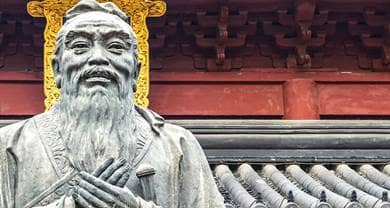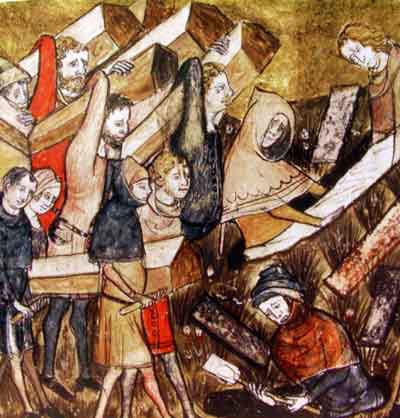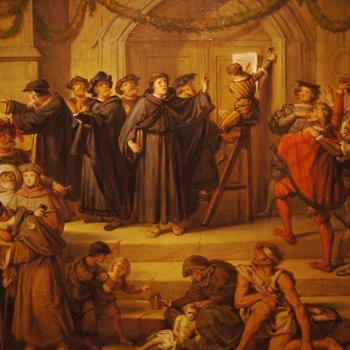- Trending:
- Olympics
- |
- Forgiveness
- |
- Resurrection
- |
- Joy
- |
- Afterlife
- |
- Trump

RELIGION LIBRARY
Confucianism
Some say Confucianism is not a religion, since there are no Confucian deities and no teachings about the afterlife. Confucius himself was a staunch supporter of ritual, however, and for many centuries there were state rituals associated with Confucianism. Most importantly, the Confucian tradition was instrumental in shaping Chinese social relationships and moral thought. Thus even without deities and a vision of salvation, Confucianism plays much the same role as religion does in other cultural contexts. The founder of Confucianism was Kong Qiu (K'ung Ch'iu), who was born around 552 B.C.E. in the small state of Lu and died in 479 B.C.E. The Latinized name Confucius, based on the honorific title Kong Fuzi (K'ung Fu-tzu), was created by 16th-century Jesuit missionaries in China. Confucius was a teacher to sons of the nobility at a time when formal education was just beginning in China. He traveled from region to region with a small group of disciples, a number of whom would become important government officials. Confucius was not particularly famous during his lifetime, and even considered himself to be a failure. He longed to be the advisor to a powerful ruler, and he believed that such a ruler, with the right advice, could bring about an ideal world. Confucius said heaven and the afterlife were beyond human capacity to understand, and one should therefore concentrate instead on doing the right thing in this life. The earliest records from his students indicate that he did not provide many moral precepts; rather he taught an attitude toward one's fellow humans of respect, particularly respect for one's parents, teachers, and elders. He also encouraged his students to learn from everyone they encountered and to honor others' cultural norms. Later, his teachings would be translated by authoritarian political philosophers into strict guidelines, and for much of Chinese history Confucianism would be associated with an immutable hierarchy of authority and unquestioning obedience.
Quick Facts
| Formed | c. 500 B.C.E. |
| Adherents | 5,000,000 |
| Deity | None / various gods and ancestors |
| Sacred Text | Analects (Lunyu), the Five Classics (Wujing), the Four Books (Sishu) |
| Origin | China |
| Headquarters | None |










